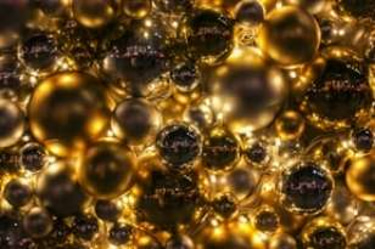The Timeless Secrets of Milk and Honey in Ancient Egyptian Beauty
In ancient Egypt, milk and honey held not only nutritional value but also symbolic significance. Revered for their purity and sweetness, these two natural products were often associated with the gods and the afterlife. Milk, symbolizing nourishment and femininity


The Luxurious Origins of Milk and Honey
In ancient Egypt, beauty was not merely a superficial pursuit but a significant aspect of daily life and culture. Among the notable beauty practices were the use of milk and honey, which served as essential components in skincare and cosmetic formulations. Both ingredients have a rich history, being celebrated not only for their nourishing properties but also as luxurious offerings in beauty rituals.
The Skin Benefits of Milk
Milk, revered for its moisturizing and soothing qualities, played a crucial role in ancient Egyptian beauty routines. It is rich in vitamins and proteins that promote skin health, making it a natural choice for enhancing beauty. Cleopatra, the famed queen of Egypt, was said to indulge in milk baths to achieve her radiant complexion. The lactic acid present in milk acts as a gentle exfoliator, helping to brighten the skin and improve its texture. Regular use of milk in beauty treatments was believed to maintain skin elasticity, a vital factor in preserving youthful allure.
The Healing Properties of Honey
Honey, often regarded as the elixir of life, was celebrated in ancient Egyptian society for its multifaceted benefits. Known for its antibacterial and antifungal properties, honey was utilized to treat various skin ailments, ensuring that the skin remained clear and healthy. Moreover, honey served as a humectant, drawing moisture into the skin and thereby contributing to a plump and hydrated appearance. Its natural sugars also acted as a gentle exfoliant, which, when combined with milk, created creamy masks that women of ancient Egypt cherished for luxurious skincare.
Combining Milk and Honey for Radiant Skin
The combination of milk and honey in ancient Egyptian beauty regimes was more than a mere trend; it was a testament to the use of natural ingredients for skin health. Masks made from these two elements were popular for their nourishing qualities, embodying the belief that beauty rituals could harness the power of nature. These beauty treatments were not just about aesthetic appeal but also represented a spiritual connection to the gods, with milk and honey often being included in offerings to deities.
The Legacy of Milk and Honey in Modern Beauty
Today, the legacy of milk and honey endures in contemporary beauty treatments. Many skincare products now incorporate these ingredients, recognizing their historical significance and efficacy. By revisiting the traditional practices of ancient Egyptians, modern beauty enthusiasts can embrace the time-honored wisdom of natural skincare. The use of milk and honey continues to inspire countless beauty rituals, ensuring their place in the pantheon of effective beauty treatments throughout the ages.
